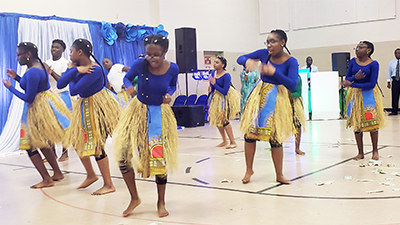A new book of Photography by David Pluth, with Stories by Sylvester Onyang and Jeremy O’Kasick
A tapestry of national-geographic-like imagery and stories on the history and the culture of the Karimojong people of Uganda, this publication is more than a coffee table book.
Uganda’s Karimojong remind one of Kenya and Tanzania’s world famous Maasai. Living in isolation in Uganda’s inland, the Karimojong are a proud Nilotic people who have stood the test of time. They have adopted little from their neighbors and oppressors maintaining their century-old customs and cultures. Like many other remote tribes all over the world, the Karimojong continue to live as their ancestors before them.
For nearly a decade National Graphic photographer, David Pluth has been photographing and interacting with the Karimojong. This, he maintains, has given him an incredible insight into a community that very few understand. A native of Minnesota, residing in Sweden, Pluth has collaborated with Sylvester Onyang, a Karimojong national reporter for one of Uganda’s biggest dailies, the Monitor and Jeremy O’Kasick a freelance journalist, and a Mshale contributing writer.
It is this combined experience, and years of living among the Karimojong that led to the production of a coffee table book—Karamoja, Uganda’s Land of Warrior Nomads. Little has been documented on Uganda’s Karimojong allowing Pluth and his team an opportunity to tell their story.
In his prologue, Pluth notes that the book is by no means a “complete catalog explication of Karimojong culture and society. It is an imperfect visual record, a snapshot in time of a culture bridging between an ancient past and the unknown future.” This snapshot, however, paints a very vivid picture of the daily and seasonal lifestyle and culture of the Karimojong.
Guns
Karimojong warriors have made Ugandan headlines for several years, stereotyped for cattle rustling, destruction of property, rape, child trafficking among many others.
More than a century ago, Ethiopians, Swahili and Arab traders introduced guns to the Karimojong. Colonialism did not help either, as the Karimojong fought many wars for the British including World War II where they fought against the Italians. In later years, wars in neighboring countries have contributed to the increase of gun ownership among the Karimojong.
The narrators contend that despite such headlines, the Karimojong are changing. “After all, one co-author of this book not only graduated from university, but he has gone on to be an internationally recognized journalist …”
Like in many nomadic communities, the Karimojong hold their cow sacred. Cows are their livelihood and a part of their daily lives. “[T]hey sing and compose poetry about their cattle, and they even take the names of their most prized bulls as monikers.”
Beauty and Marriage
Women are heavily ornamented, and Pluth takes striking poses of laughing Karimojong women—from earrings to heaps of steel necklaces to armbands and bracelets to beaded headbands, Karimojong women take time to beautify themselves. Interestingly, when her husband dies, the wife sheds all these ornaments for the rest of her life. Karimojong men, on the other hand, have tattoo scarrings as beauty marks. (In some clans, however, women are also tattooed).
What cultural story is not complete without a narration about love and marriage? Bride price is important from the man to the woman’s family in cows, but first he must negotiate with them. “The occasion is marked by hard bargaining and insults back and forth, as the families negotiate until the last minute before the marriage is sealed.” It is dramatic, because even the insults are in good humor. Soon, the wedding preparations begin; elaborate preparations where both man and woman are groomed for their great day.
Throughout the book, Pluth takes striking photos of the Karimojong as they herd their cattle, of men and women in full traditional ornament, of children playing out in the sun.
The book has been widely received by the Karimojong community, and the Ugandan government has even designed a postage stamp after the cover of the book.
To get an advance look at the book visit www.karamoja.com. If you are interested in purchasing Karamoja: Uganda’s Land of Warrior Nomads contact Jeremy O’Kasick here [email protected].
About Julia N. Opoti
A former Mshale editor, Julia Nekessa Opoti is now the producer and host of the radio show: Reflections of New Minnesotans on AM950 . She also edits/publishes Kenya Imagine.








Not only are the photo’s magnificent–but the writing about
them is brilliant. Yes, far more than a coffee table book.
Comments are closed.